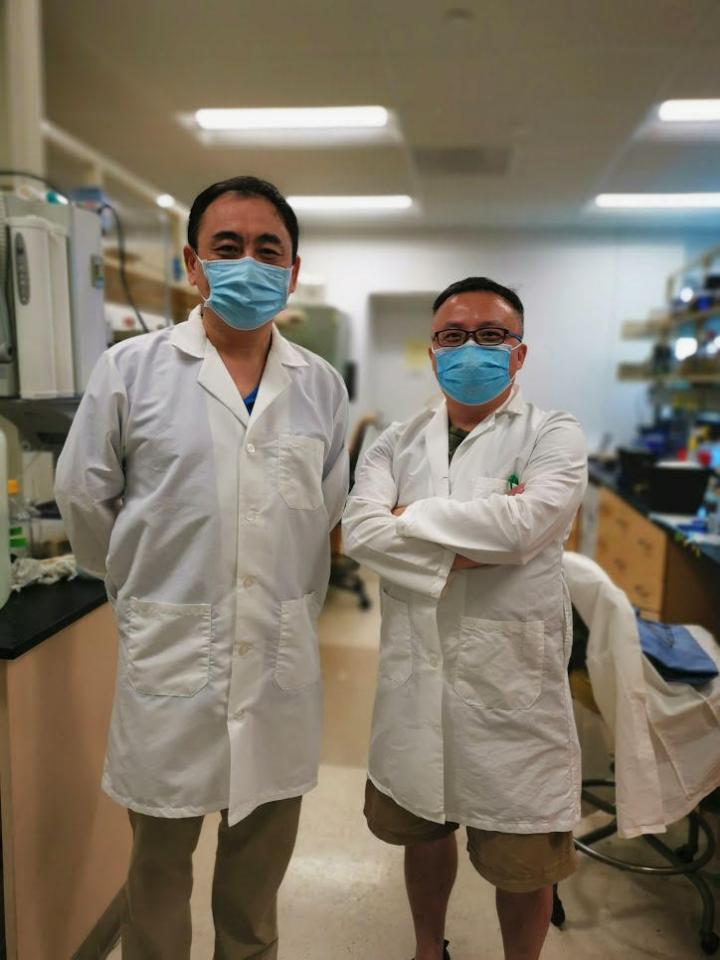UC Riverside-led research advances vaccine and drug development against the virus

Credit: Song lab, UC Riverside.
RIVERSIDE, Calif — A research team led by scientists at the University of California, Riverside, has outlined how the Zika virus, which constituted an epidemic threat in 2016, suppresses the immune system of its host.
The Zika virus, or ZIKV, spreads through mosquito bites and sexual intercourse. Currently, no approved vaccine or antivirals against ZIKV exist.
“Suppressing host immunity is a common strategy employed by viruses to achieve successful infection,” said Jikui Song, a professor of biochemistry at UCR, who co-led the study. “Our work provides valuable structural and functional information on the interaction between ZIKV and its host and offers a framework for the development of vaccines and antivirals.”
The study appears in Nature Structural & Molecular Biology.
Song explained the steps involved in suppressing the host immune response. ZIKV encounters the first line of defense by way of a type I interferon, or IFN, response in the host. Secreted by infected cells, IFNs are natural substances that help the host’s immune system fight infection. Once ZIKV infects the cell, it presents a nonstructural protein, NS5, which interacts with a key player in the type I IFN pathway: the STAT2 protein. The interaction between ZIKV NS5 and STAT2 degrades STAT2, which inhibits the type I IFN response.
The research involved first solving the crystal structure of a complex between a large fragment of ZIKV NS5 and STAT2. This crystal structure guided the researchers in solving the cryo-EM structure of ZIKV NS5 and STAT2, which then led them to come up with a model for how ZIKV NS5 suppresses human STAT2.
“Understanding the interaction, at the molecular level, between ZIKV NS5 and the host immune factor STAT2, opens up a new window for the rational design of live attenuated vaccines and antivirals” said study co-leader Rong Hai, an assistant professor of virology at UCR. “Targeting the virus-host interaction may also provide an important approach for drug development against SARS-CoV-2, the virus that causes COVID-19.”
The researchers also generated a panel of mutant ZIKV viruses.
“To our knowledge, these are the first NS5-based ZIKV mutants, which have the potential to be used as live attenuated ZIKV vaccines,” Hai said.
Next, the researchers will work on the structure and function of SARS-CoV-2 proteins to identify new targets against COVID-19.
###
Song and Hai were joined in the study by Z. Hong Zhou at UCLA, also a senior author of the research paper. Other coauthors include UCR’s Boxiao Wang and Stephanie Thurmond. Kang Zhou at UCLA and Maria T. Sánchez-Aparicio at the Icahn School of Medicine at Mount Sinai share co-first authorship with Wang and Thurmond.
Song was supported by a grant from the National Institutes of Health, or NIH, and a University of California Cancer Research Coordinating Committee Faculty Seed Grant. A second NIH grant funded both Song and Hai.
The research paper is titled “Structural basis for STAT2 suppression by flavivirus NS5.”
The University of California, Riverside (http://www.
Media Contact
Iqbal Pittalwala
[email protected]
Related Journal Article
http://dx.




